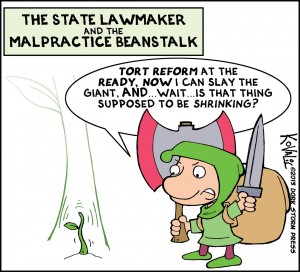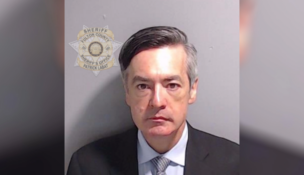Editorial: Logic behind tort reform push is unclear
By: WISCONSIN LAW JOURNAL STAFF//April 22, 2013//
Editorial: Logic behind tort reform push is unclear
By: WISCONSIN LAW JOURNAL STAFF//April 22, 2013//
 Lawmakers pushing for tort reform at the state Capitol paint a colorful picture of soaring attorney fees and malpractice lawsuits.
Lawmakers pushing for tort reform at the state Capitol paint a colorful picture of soaring attorney fees and malpractice lawsuits.
But like a Salvador Dali painting, that picture greatly distorts and even obscures reality.
Proponents of Assembly Bill 139, which would keep doctors from being held liable for not telling patients about alternative diagnostic tests, say the law is needed to avoid a rapid increase in malpractice lawsuits.
Yet, the number of in-state requests for medical mediation — a preliminary step to a malpractice case — has dropped, from 324 in 1995 to 140 in 2012, according to statistics from the Wisconsin Medical Mediation Panels. In that same time, the number of malpractice cases resulting in a jury verdict dropped from 41 to 16.
Equally confusing are the motivations behind Assembly Bill 27, which seeks to cap at $30 million the amount of contingency fees law firms working for the state can collect.
The sponsor of the bill, state Rep. Mike Kuglitch, R-New Berlin, said the push goes back to the big tobacco settlement of the 1990s, in which three Wisconsin law firms obtained a $5.9 billion recovery for the state. The resulting $75 million in legal fees “infuriated many taxpayers,” Kuglitch said.
So why the push now, when there has been no similar instance in the years since?
According to Milwaukee lawyer Daniel Rottier, these bills are solutions in search of a problem. Rottier, who worked on the tobacco case, asserts the push for such tort reform measures is more about winning political points with big business than correcting a problem.
In fact, Assembly Bill 27 is similar to the Transparency in Private Attorney Contracts legislation enacted in Florida and written by Bill McCollum, a Washington-based lawyer who represents the U.S. Chamber of Commerce.
McCollum spoke at a recent Wisconsin hearing about the proposed legislation, emphasizing the need for reform. He argued that large contingency fee payments are on the rise in other states and that Wisconsin should get ahead of the issue. But McCollum offered no proof.
If the legislators proposing these bills had compelling evidence of current wrongdoing, the push for reform would not be so questionable. But their arguments thus far gloss over any basis in logic.
Legal News
- Steven Avery prosecutor Ken Kratz admits ‘mistakes were made’
- Colombian national extradited to Milwaukee faces International narcotics-trafficking conspiracy charge
- MPD: Milwaukee homicides down nearly 40 percent compared to last year
- EVERS: Republican lawmakers No-Show at special meeting to release statewide PFAS funding, stabilize healthcare access
- Wisconsin ICAC Task Force conference on Missing and Exploited Children highlights increase in sextortion cases
- More than 300 Wisconsin officers back in law enforcement after being fired or forced out
- Former Trump staffer who said to ‘fan the flame’ after 2020 loss hired to lead Wisconsin GOP
- Gov. Evers appoints David Casey to Serve as DOR Secretary
- Former Marine sentenced for Molotov Cocktail attack against Planned Parenthood Clinic
- ABA names 34th Annual Margaret Brent Women Lawyers of Achievement Awards honorees
- FBI launches criminal investigation into Key Bridge collapse
- Man charged in slaying after woman’s leg found at Milwaukee-area park
WLJ People
- Power 30 Personal Injury Attorneys – Russell Nicolet
- Power 30 Personal Injury Attorneys – Benjamin Nicolet
- Power 30 Personal Injury Attorneys – Dustin T. Woehl
- Power 30 Personal Injury Attorneys – Katherine Metzger
- Power 30 Personal Injury Attorneys – Joseph Ryan
- Power 30 Personal Injury Attorneys – James M. Ryan
- Power 30 Personal Injury Attorneys – Dana Wachs
- Power 30 Personal Injury Attorneys – Mark L. Thomsen
- Power 30 Personal Injury Attorneys – Matthew Lein
- Power 30 Personal Injury Attorneys – Jeffrey A. Pitman
- Power 30 Personal Injury Attorneys – William Pemberton
- Power 30 Personal Injury Attorneys – Howard S. Sicula











